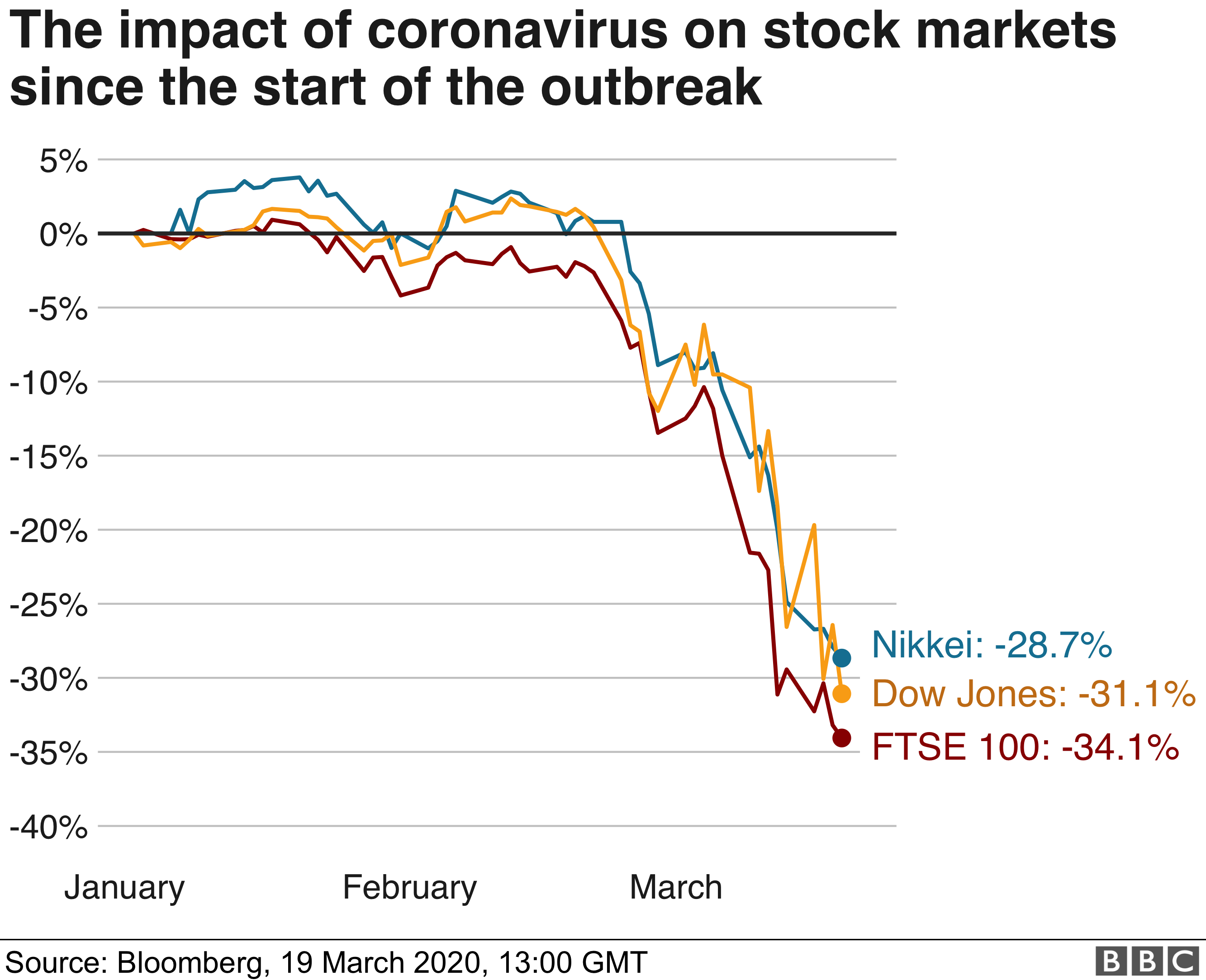Global Implications of the Coronavirus Pandemic
Kashvi Singh
The ongoing crisis due to the coronavirus outbreak has become the single biggest threat to the global economy. With more than 15,400 people already dead across the globe, it certainly poses a question about how concerned we should be regarding a possible global financial crash, if the virus keeps spreading at the current rate.
 As of now,
the worst affected countries including China, Italy and Spain have imposed
heavy lockdowns in the regions, while other countries have only advised their
citizens to self-isolate. The British government has released a new wage
support scheme to ensure that financial loss suffered by businesses and by
those who are self-employed due to self-isolation is minimised. Many other
countries have also responded in a similar way by introducing financial help of
some sort to those affected due to self-isolation, which is a rather reassuring
sign as it encourages people to stay at home to control the spread of the
virus. Central banks across the world have also lowered their interest rates in
order to encourage borrowing, and thus, spending. However, one can question as
to what extent this could help in reviving the economy when people cannot step
out and spend in the first place.
As of now,
the worst affected countries including China, Italy and Spain have imposed
heavy lockdowns in the regions, while other countries have only advised their
citizens to self-isolate. The British government has released a new wage
support scheme to ensure that financial loss suffered by businesses and by
those who are self-employed due to self-isolation is minimised. Many other
countries have also responded in a similar way by introducing financial help of
some sort to those affected due to self-isolation, which is a rather reassuring
sign as it encourages people to stay at home to control the spread of the
virus. Central banks across the world have also lowered their interest rates in
order to encourage borrowing, and thus, spending. However, one can question as
to what extent this could help in reviving the economy when people cannot step
out and spend in the first place.
There are
however, questions about the degree of response by other countries that are at
the moment, relatively less affected. The tragedy in Italy only stands as a
warning to governments of other nations who are not taking the virus very
seriously, which again reflects the conflict between the health of the economy
and the health of the people themselves. While some nations are prioritising
their economy by not imposing lockdowns, some argue that this could lead to
even severe economic repercussions if a sudden spike in the number of cases
occurs, as was the case in Italy.
There are
also major concerns over the virus spreading into developing nations, as the
World Health Organisation (WHO) has warned - “A potential paralysation of
already vulnerable healthcare systems would not only have a drastic impact on
population health, but could also push people further into poverty and
deprivation”.
The fear
that has seeped in amongst investors regarding economic decline due to the
virus, is particularly dangerous, as it means that most of the burden of
economic renewal is forced onto the machinery of government. However, these are
only short-term impacts of the virus and there is sufficient evidence from the
past that suggests that ‘growth picks up pretty quickly post-pandemic’.
The decline
of the aviation industries, however, can make the economy more prone to slow
growth due to the high risks of unemployment caused by downsizing. On the 5th
of March, the International Air Transport Association (IATA) estimated that the
airline industry could lose between US$63 to 113 billion of revenues due to the
reduced number of passengers. Financial markets are now also anticipating a
large fall in airline profits globally, far beyond the SARS impact. This is
concerning as the aviation industry makes up around 3.5% of the world GDP,
which reveals why it is so crucial to revive this sector.


Comments
Post a Comment